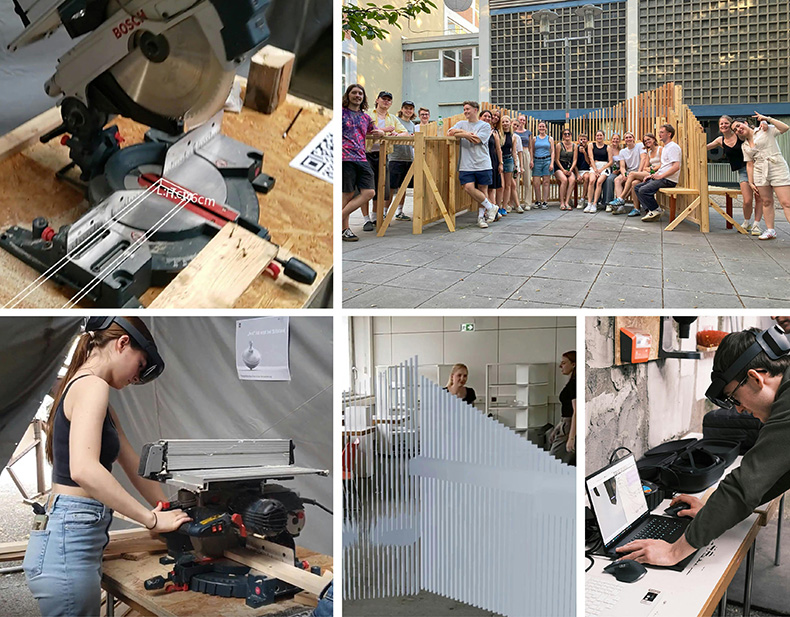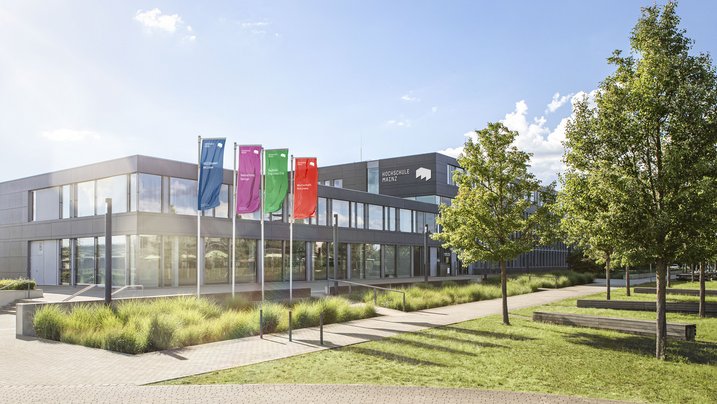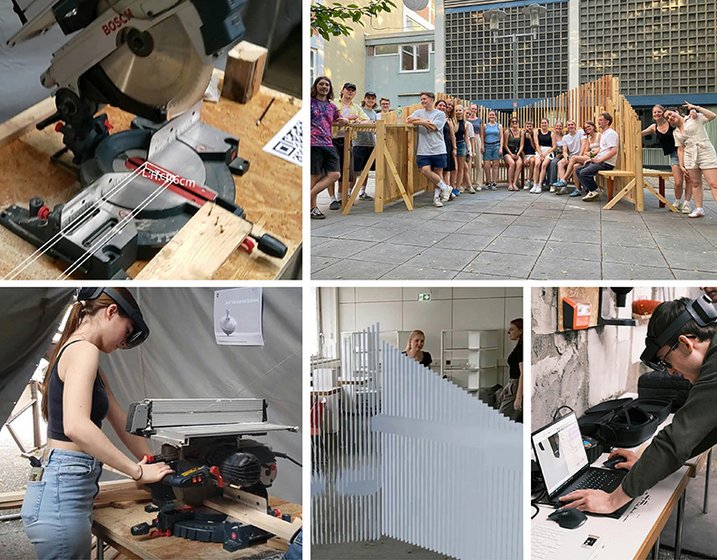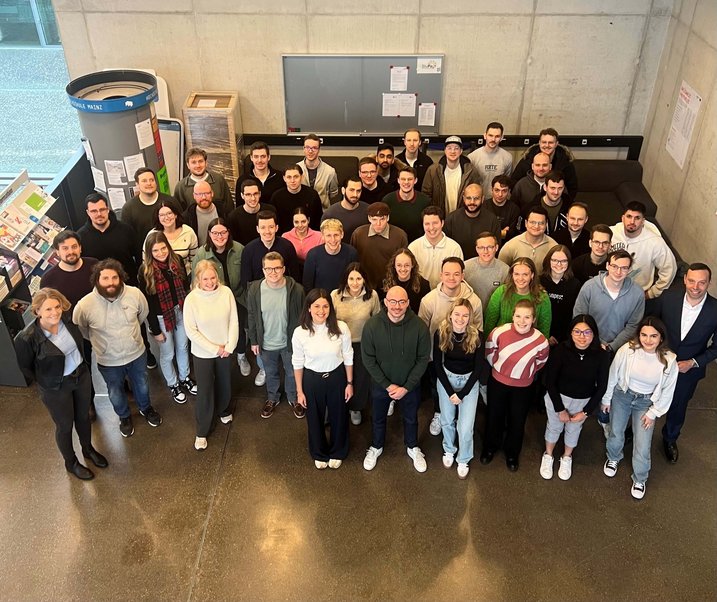Competitionline’s Campus Award is an annual prize awarded to outstanding architecture, engineering, and design projects by students and young professionals. Its objective is to promote a creative and innovative approach among students and young professionals and to provide them with a platform to present their work to a broader public.
Digital craftsmanship
The Digital Craftsmanship semester project shows how 34 second-semester architecture students use digital and analog tools in a hybrid format to build a wooden pavilion for the Mainz University of Applied Sciences campus.
Innovation and challenge are new methods for traditional processes in design, planning, material procurement, logistics and production. Students' self-directed organization during the project leads to a high level of social and professional exchange.
A practical, manual construction exercise is used to acquire basic material experience with wood in the areas of sizing, jointing, and load-bearing capacity. In the subsequent design phase, all students design a wooden pavilion exclusively in a VR environment (GravitySketch). This enables students to directly experience the spatial impression, element configuration, and sizing in a three-dimensional environment and learn a new and direct design process.
As part of the process of self-organization, the preferred designs were combined and edited for further planning. The planning was fully parameterized to reconcile material sourcing through urban mining with design implementation. This made it possible to individually adapt the cross-sections and the number of load-bearing and space-forming elements to the available timber collected.
The parameterization also facilitated complex geometric generation and management with over 700 individual parts, each of which needs to be processed differently. Each element was given a unique designation and integrated into a specific workflow based on the component group, where it was marked, cut, notched, or pre-drilled. These workflows were prepared for production using AR glasses (Microsoft Hololens) and a corresponding app (fologram) so that plans could be eliminated. A particular challenge during planning and production was the decision to use only wooden joints and to completely dispense with screw fittings.
The Digital Craftsmanship semester project was developed under the direction of Prof. Thomas Mrokon, Jonathan Haber, Joel Jöbgen M.Sc., and Miriam Weckerle M.Sc. with students in the second semester of architecture studies in Construction.




